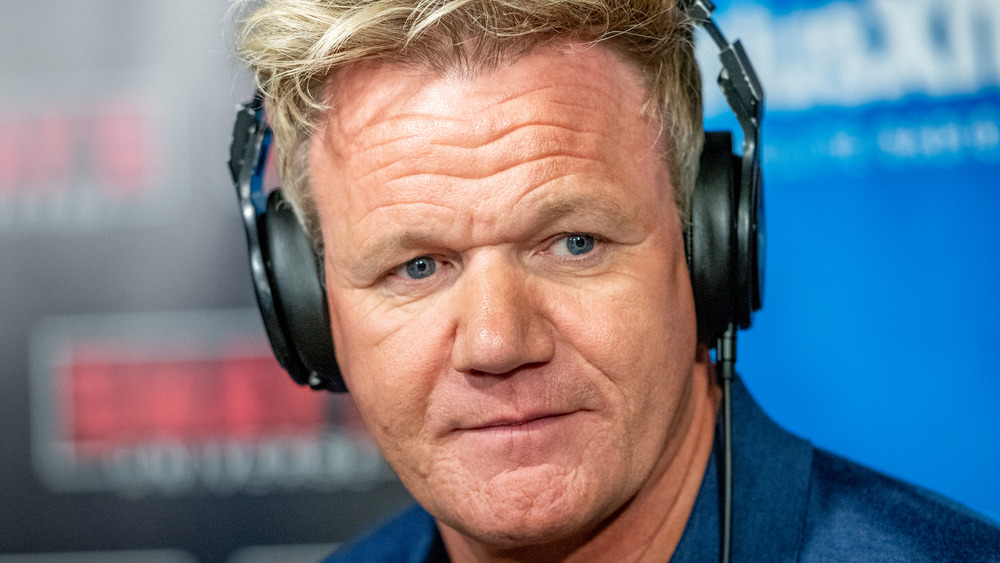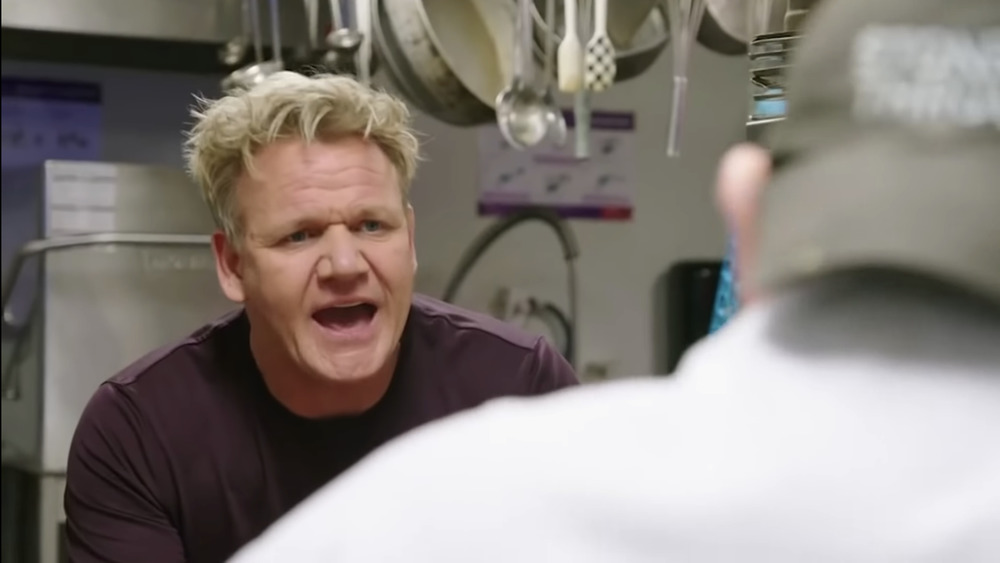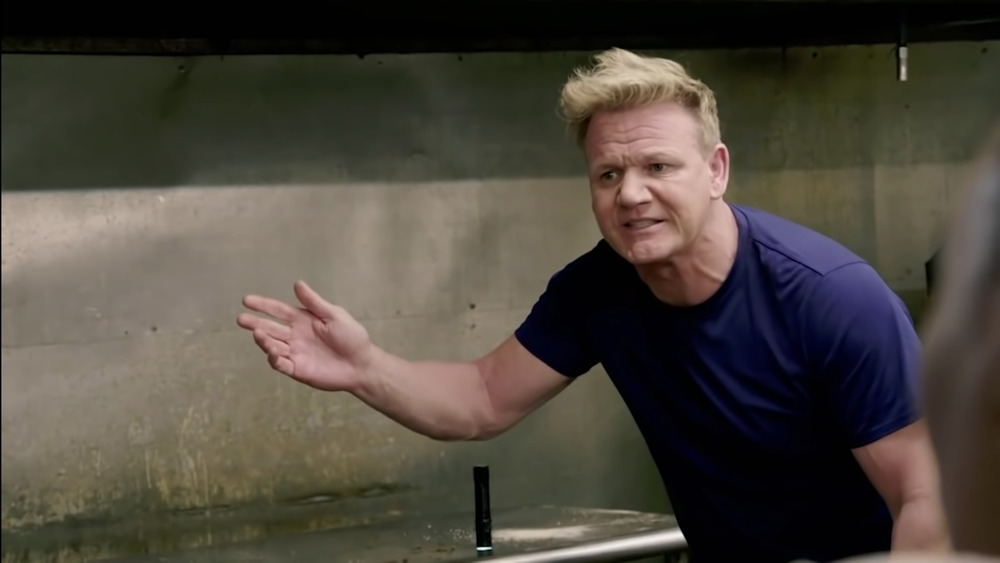J. Kenji López-Alt Just Called Out Gordon Ramsay's 'Abusive' Behavior
Posting to Instagram on February 21, J. Kenji López-Alt renewed his campaign against fellow celebrity chef Gordon Ramsay and the abusive restaurant culture he's accused of standing for. López-Alt, currently a food columnist for The New York Times, posted a still image of Ramsay from the 1999 documentary series Boiling Point - Ramsay's first moment in the TV-celebrity spotlight. According to Documentary Heaven, Boiling Point introduced viewers to the tough, demanding, and abusive Ramsay persona – and audiences embraced it. The image López-Alt posted from Boiling Point is blurry but seems to show Ramsay throwing a punch at one of his cooks.
"This man should be in therapy, not running kitchens or being looked up to as an inspiration," López-Alt wrote in his caption. "Kitchens have a long history of being abusive, crappy workplaces and @gordongram, with his normalization of this behavior, plays an outsized and active role in perpetuating it."
López-Alt says Ramsay is a bad influence on restaurant workplace culture
This isn't the first time López-Alt has called Ramsay out for his abusive behavior. "People ask why I'm so anti-Gordon Ramsay," López-Alt tweeted in 2017. "It's cuz of his huge role in perpetuating sexism/bullying in the kitchen." For the most part, Ramsay is known as an "equal-opportunity abuser," going after men and women both, as restaurateur Jen Agg said in The New York Times.
López-Alt suggested on Instagram a "no cursing" rule in kitchens, "even in casual speech," as a way to expunge Ramsay's type of toxicity from restaurant kitchens. Still, he sometimes lapsed into vulgar language himself when attacking Ramsay on Twitter. In 2019, López-Alt tweeted that "Gordon Ramsay can go f*** himself" in response to another Twitter user who pointed out that López-Alt and Ramsay have opposite opinions about pineapple on pizza. López-Alt persisted with his point in the same thread: "@GordonRamsay is a bad guy. He uses his influence to normalize workplace abuse. His restaurants are abusive to their staff (mentally and physically – I have seen it first hand). He exploits orientalist stereotypes of Asian cultures to line his own pockets. He's bad all around."
By "orientalist stereotypes," López-Alt, who has a Japanese mother (via his online bio), might be referring to Ramsay's Asian-themed London restaurant the Lucky Cat.
Angry chefs like Gordon Ramsay are becoming a thing of the past
Ramsay hasn't engaged with López-Alt on social media, but Ramsay's fans have. (López-Alt left Twitter earlier this month, saying it was too argumentative.) Some commenters under López-Alt's February 21 Instagram post said Ramsay has changed since the 1999 documentary. Others said the proof of Ramsay's approach is in the results. Boiling Point showed a younger Ramsay working under the pressure of trying to get Michelin stars for his restaurant. "That restaurant kept those three stars ever since," one commenter said. "If that's not inspiring, then I don't know what is." López-Alt responded, "If you think that stars are more valuable than basic human decency, you need to reset your priorities."
Ramsay may have made a lucrative career of perpetuating the angry-chef stereotype, but the good news is that times have changed since Ramsay earned his proverbial stripes – and his stars. Chefs who spoke to Vice in 2018 said the new generation of up-and-comers in restaurant kitchens are less willing to put up with the abuse. And respectful kitchens, they said, make for better restaurants. "It's counterproductive," said Dominique Ansel, a baker who banned cursing in his kitchen. "Swearing and shouting will only cause your cooks to become intimidated and affect the quality of their work and productivity."
London restaurateur Trevor Gulliver, another proponent of the calm kitchen, put it this way in the Vice article: "A happy kitchen means happy customers."


